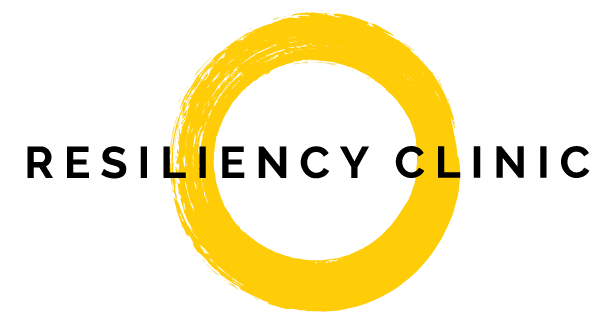Did you know that Obsessive-Compulsive Disorder (OCD) affects approximately 1 in 40 adults and 1 in 100 children worldwide? This complex and often misunderstood mental health disorder can significantly impact the lives of those who suffer from it. In this comprehensive guide, we will delve into the intricacies of OCD, explore its various manifestations, and outline the most effective OCD treatment options available. Let’s begin our journey to understand better and support those living with OCD.
Short Summary
OCD is characterized by obsessive thoughts, compulsive behaviours and intrusive thoughts that can interfere with daily life.
It is essential to differentiate between OCD and general obsessiveness to identify the disorder’s signs & symptoms.
Cognitive Behavioral Therapy (CBT) or medication are recommended first-line treatments for OCD, while alternative treatment options such as group therapy may offer additional relief.
Understanding OCD

Obsessive-Compulsive Disorder (OCD) is a mental health disorder characterized by obsessive thoughts, compulsive behaviours, and intrusive thoughts that cause significant distress and interfere with daily life. OCD typically begins in late adolescence or early adulthood, with the average age of onset being 19 years. It is essential to seek the guidance of a mental health professional to accurately diagnose and manage OCD, as its symptoms can resemble those of other anxiety disorders or mental health conditions.
To better understand the complexities of OCD, it’s crucial to examine its core components: obsessive thoughts, compulsive behaviours, and intrusive thoughts.
Obsessive Thoughts
Obsessive thoughts can be overwhelming and intrusive. They may include persistent thoughts, impulses or images that cause fear, anxiety or disgust. These thoughts are often unwanted and intrusive, causing significant distress to the individual experiencing them. Unfortunately, individuals with OCD are unable to control their obsessions. To alleviate the distress caused by these obsessive thoughts, most people with OCD will resort to compulsions, attempting to ignore or suppress the obsessions or diverting themselves from other activities.
It is important to note that everyone may experience distressing thoughts at some point, but for individuals with OCD, these thoughts are persistent and significantly interfere with their daily life. The intensity of these thoughts can vary, but their impact on the individual’s overall mental health and well-being can be profound.
Compulsive Behaviors
Compulsive behaviours are repetitive actions in response to obsessive thoughts to temporarily alleviate a person’s distress associated with the obsession. These behaviours can include repetitive actions or avoidance of situations that trigger obsessions. For example, someone with OCD may excessively wash their hands to alleviate the fear of contamination.
Unfortunately, compulsive behaviours often become time-consuming, significantly interfering with work, school, and social interactions. Over time, the individual may become trapped in a cycle of obsessive thoughts and compulsive rituals, negatively impacting their overall quality of life.
However, mastering the ability to manage obsessions and compulsions can lead to an improved quality of life.
Intrusive Thoughts in OCD
Intrusive thoughts in OCD are unwanted thoughts that invade a person’s mind, causing distress and anxiety. These thoughts can be related to various themes, such as contamination, aggression, or morality. In some cases, intrusive thoughts can lead to compulsions, exacerbating the individual’s distress and further entrenching the cycle of OCD.
Treatment options, such as cognitive behavioural therapy (CBT), and Habit Reversal Therapy, can help individuals manage and cope with these intrusive thoughts. Learning about mindful self-compassion and distress tolerance skills can add excellent coping tools.
Do You Have OCD, or Are You Simply Obsessive?

It is important to differentiate between OCD and general obsessiveness, as the latter does not necessarily indicate the presence of a mental health disorder. While many people without OCD may experience distress, is essential to differentiate between OCD and general obsessiveness, as the latter does not necessarily indicate the presence of a mental health disorder. While many people without OCD may experience distressing thoughts or repetitive behaviours, these typically do not impede their daily life.
In contrast, individuals with OCD suffer from persistent and intrusive thoughts, rigid behaviours, and significant distress that affects their daily functioning. To better understand whether you or a loved one may have OCD, it’s crucial to recognize the signs and symptoms of the disorder. Of course, you can also seek therapy to help with traits similar to OCD to improve your quality of life.
OCD Signs & Symptoms
The primary symptoms of OCD include obsessions and compulsions that interfere with daily activities and may fluctuate in intensity over time. Obsessions are recurrent thoughts, impulses, or images that cause anxiety, while compulsions are repetitive behaviours or mental acts that an individual feels compelled to carry out.
Common manifestations of OCD may include a fear of contamination or dirt, doubtfulness and an inability to endure ambiguity, a need for orderliness and symmetry, and recurrent cleaning or organizing of items. Recognizing these symptoms is critical for seeking appropriate treatment and support.
Testing for OCD
Diagnosing OCD involves assessing an individual’s symptoms and medical history and evaluating their thoughts, feelings, and behaviour patterns. Mental health professionals use criteria outlined in the Diagnostic and Statistical Manual of Mental Disorders, 5th Edition (DSM-V) to diagnose Obsessive-Compulsive Disorder.
OCD in Women
Women with OCD may face unique challenges and experiences, including managing their symptoms amidst societal expectations, fear of being judged or misunderstood, and difficulty seeking help due to stigma. The indications and manifestations of OCD in women may include fear of contamination, doubting and having difficulty accommodating uncertainty, requiring things orderly and symmetrical, and superfluous or ritualized hand washing, showering, brushing teeth, or toileting.
Treatment options for women with OCD may include cognitive-behavioural therapy (CBT), exposure and response prevention (ERP), and medication. Supporting women with OCD is crucial for helping them gain control over their symptoms and reduce any negative perceptions.
OCD in Adults
Approximately 2-3% of adults in Canada are affected by OCD. Women may experience a slightly greater prevalence than men. The indications and manifestations of OCD in adults consist of obsessions, compulsions, or both, often disrupting normal activities and leading to excessive cleaning, checking, counting, ordering, arranging, or hoarding.
Treatment for OCD in adults typically consists of cognitive-behavioural therapy, medication, or a combination of both, intending to help individuals manage their symptoms and improve their overall quality of life.
First-Line Treatments for OCD
The most effective treatments for OCD include cognitive-behavioural therapy (CBT) and medication, specifically selective serotonin reuptake inhibitors (SSRIs). CBT, including a technique called Exposure and Response Prevention (ERP), focuses on altering the thought patterns and behaviours associated with OCD.
At the same time, SSRIs may help reduce the severity of symptoms. It is important to note that SSRIs may take up to eight to 12 weeks to start showing positive results in managing OCD symptoms. Close collaboration with a healthcare professional is essential for finding the appropriate medication and dosage for each individual.
Exploring these first-line treatments is essential to determine the best course for managing OCD symptoms.
Exposure and Response Prevention (ERP)
Exposure and Response Prevention (ERP) is a form of CBT that involves gradually exposing oneself to feared situations or objects while resisting compulsive rituals. ERP aims to teach individuals to manage their thoughts without relying on ritualistic behaviours, decreasing their anxiety over time.
Customarily, ERP begins with situations that only result in mild or moderate symptoms, progressing to higher anxiety as the individual gains confidence and control.
Alternative Treatment Options

For some individuals, first-line treatments may not provide sufficient relief from OCD symptoms. In such cases, alternative treatment options may be considered. These options include group exposure and teletherapy, response prevention therapy, mindfulness training, and intensive outpatient programs.
Individuals can find the best fit for their unique needs and circumstances by exploring various treatment options. This can help them manage their OCD symptoms more effectively and lead a more fulfilling life.
Intensive Outpatient Programs
Intensive Outpatient Programs (IOP) are structured, non-residential psychological treatment programs that utilize evidence-based practices to address OCD and other mental health disorders. These programs typically consist of specialized group therapy sessions led by clinical therapists and last for 8 to 12 weeks.
The success rate of IOP is approximately 50 to 70%, making it a viable option for those who require a more intensive level of care.
Group Therapy and Teletherapy
Group therapy and teletherapy are alternative therapy options that can provide additional support and resources for individuals with OCD. Group therapy entails a therapist conducting a dialogue among a small group of clients with similar experiences, allowing them to learn from one another and develop more effective coping strategies.
Conversely, teletherapy is a form of therapy conducted remotely via telephone or video chat, providing support and resources to individuals who cannot attend traditional therapy sessions.
Experimental Approaches

Recent advancements in mental health have led to the investigation of new and experimental treatments for OCD, such as deep brain stimulation and transcranial magnetic stimulation.
Managing Pediatric Autoimmune Neuropsychiatric Disorders (PANDAS)
Pediatric Autoimmune Neuropsychiatric Disorders (PANDAS) is a unique type of OCD which appears in childhood. It is caused by an overly active immune system response to an infection such as strep throat. Early antibiotic treatment is highly recommended for controlling strep infections. This will aid in managing PANDAS.
Standard OCD treatments such as exposure and response prevention (ERP) therapy and/or medication may be used for continued symptoms. This can help to reduce or alleviate the symptoms of OCD. However, it is crucial to closely monitor a child’s response to medications, as they may cause severe behavioural issues or negative side effects.
Supporting a Loved One with OCD
Supporting a friend or family member struggling with OCD can be challenging but essential for recovery. By educating oneself about OCD, its symptoms, and treatment options, providing emotional support, and encouraging healthy coping strategies, one can effectively support their loved one in managing their OCD symptoms.
Involving family and friends in treatment can also lead to better treatment success.
Involvement in Treatment

Encouraging family and friends to participate in exposure practice and therapy sessions can improve treatment outcomes for individuals with OCD. Involvement in treatment can provide support and encouragement, helping individuals with OCD manage their symptoms and sustain their treatment.
Family and friends can also help by refraining from engaging in rituals or behaviours related to the disorder and promoting healthy coping strategies instead. Often, family members unintentionally enable OCD when trying to be kind to their loved one struggling with the condition. For example, rather than obsessively cleaning the bathroom sink, a caring family member could suggest going out for a walk or drive or moving to a different room and preventing the usual response to the obsession or compulsion.
Encouraging Holistic Self-Care
Promoting healthy habits, such as good sleep, nutrition, exercise, and relaxation techniques, is crucial for helping individuals with OCD manage their symptoms. By encouraging self-care, friends and family can support their loved ones in reducing stress and anxiety, thus diminishing the intensity of OCD symptoms.
Furthermore, these activities can promote overall mental and physical health, which aids in managing OCD symptoms.
Related Conditions and Their Treatments
OCD is often associated with or co-occurs with other mental health disorders, including anxiety disorders, depression, and various obsessive-compulsive and related disorders such as Body Dysmorphic Disorder, Trichotillomania (Hair-Pulling Disorder), and Excoriation (Skin-Picking) Disorder.
Understanding these related conditions and their treatments can provide valuable insight into mental health disorders’ complex and interconnected nature.
Body Dysmorphic Disorder

Body dysmorphic disorder (BDD) is characterized by a preoccupation with perceived flaws in appearance, leading to repetitive behaviours and social avoidance. Individuals with BDD may experience significant distress anBody dysmorphic disorder (BDD) is characterized by a preoccupation with perceived flaws in appearance, leading to repetitive behaviours and social avoidance. Individuals with BDD may experience significant distress and impaired functioning due to their perceived imperfections.
BDD treatment options include cognitive behavioural therapy and medication, such as selective serotonin reuptake inhibitors (SSRIs).
Trichotillomania (Hair-Pulling Disorder)
Trichotillomania, also known as Hair-Pulling Disorder, is characterized by compulsive hair-pulling, causing distress and affecting approximately 1-2% of adults and adolescents. This disorder can lead to social avoidance, feelings of shame, and even physical damage to the scalp or other areas where hair is pulled.
Treatment options for Trichotillomania typically involve cognitive-behavioural therapy, including a technique known as habit reversal therapy, which can assist in identifying triggers and increasing awareness to help individuals gain greater control over their behaviours.
Excoriation (Skin-Picking) Disorder
Excoriation (Skin-Picking) Disorder is a mental health condition in which individuals repeatedly pick at their skin, causing lesions and potentially leading to social avoidance. This disorder can result in significant distress and impaired functioning due to the physical damage and emotional distress caused by the skin-picking behaviour.
Treatment options for Excoriation Disorder include cognitive-behavioural therapy, medications, and other alternative treatments.
Summary
In conclusion, understanding and treating Obsessive-Compulsive Disorder can be a complex and challenging journey. By delving into the various facets of OCD, its symptoms, and the multitude of treatment options available, we can better support and empower those with this mental health disorder. Remember, with the correct information, resources, and support, individuals with OCD can regain control of their lives and overcome their challenges.
Have you struggled with obsessive-compulsive disorder (OCD) and need professional help? The Resiliency Clinic in Ottawa is here to offer you cognitive-behavioural therapy (CBT) and other effective OCD treatment therapies. It’s time to take control of your life and seek your support to overcome your OCD symptoms. Don’t hesitate to reach out and inquire about an appointment to test for OCD with us. You deserve to live a happy and healthy life, and we’re here to help you achieve just that.
Frequently Asked Questions
What is the best treatment for OCD?
The best treatment for OCD is a combination of psychotherapy and medication. Evidence shows that combining cognitive-behavioural therapy (CBT) and medications, such as selective serotonin reuptake inhibitors (SSRIs), is more effective than either approach alone.
The recommended course of treatment for OCD varies, but for some people, it could be a combination of CBT and medication, and for others, therapy alone could be effective. Your doctor and a qualified mental health professional can help determine what works best for you.
What are the five treatments for OCD?
Treatment for OCD typically involves some combination of medication, cognitive behavioural therapy (CBT), exposure and response prevention (ERP) therapy, mindfulness-based practices, and family-based therapy (or separate individual therapy/coaching for parents or other family members). Medication can help reduce the symptoms of OCD, while CBT and ERP can help individuals better cope with the anxiety caused by the disorder.
Mindfulness-based approaches can also help reduce OCD symptoms, and family-based therapy can provide much-needed support to those affected by OCD. All of these treatments can be beneficial in helping those with OCD manage their symptoms and lead a fulfilling life.
How can I cure my OCD naturally?
To naturally cure your OCD, focusing on lifestyle changes and engaging in therapeutic treatments such as cognitive behavioural therapy, neurofeedback, light therapy, meditation, mindfulness-based cognitive therapy, exercise, music, and acupuncture can be helpful… be curious and keep trying new approaches until you find what works for you!
By following these strategies and practices, you can reduce the severity of your symptoms.
What therapy is best for OCD?
For the treatment of OCD, the best therapy is cognitive behavioural therapy (CBT) with exposure and response prevention (ERP). This therapeutic approach focuses on exposing people to their obsessions and teaching them how to respond differently.
What is the difference between OCD and general obsessiveness?
Obsessive-compulsive Disorder (OCD) is characterized by thoughts and behaviours that are outside of one’s control and significantly interfere with their day-to-day life. In contrast, general obsessiveness involves patterns of thought or behaviour that may be distressing but don’t necessarily result in functional impairment. OCD is a severe mental health condition that can significantly impact a person’s life. It is essential to understand the differences between OCD and general obsessiveness to diagnose and treat the condition properly.






